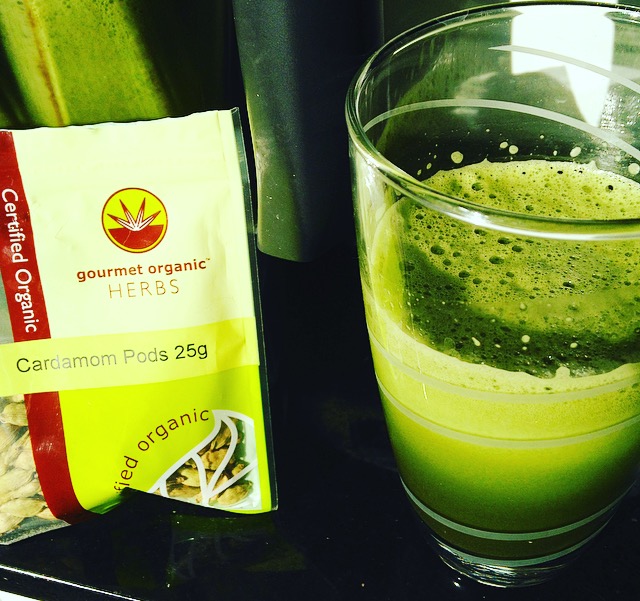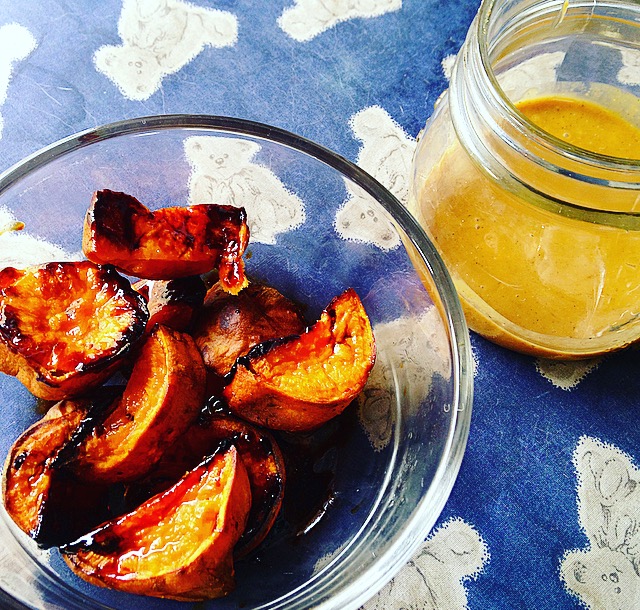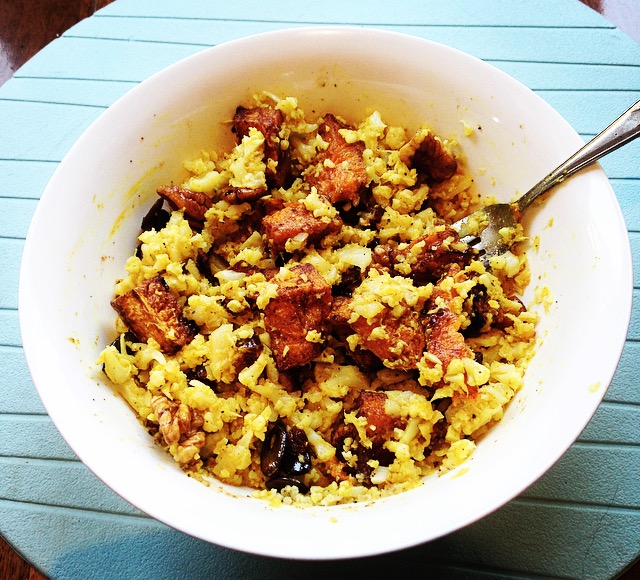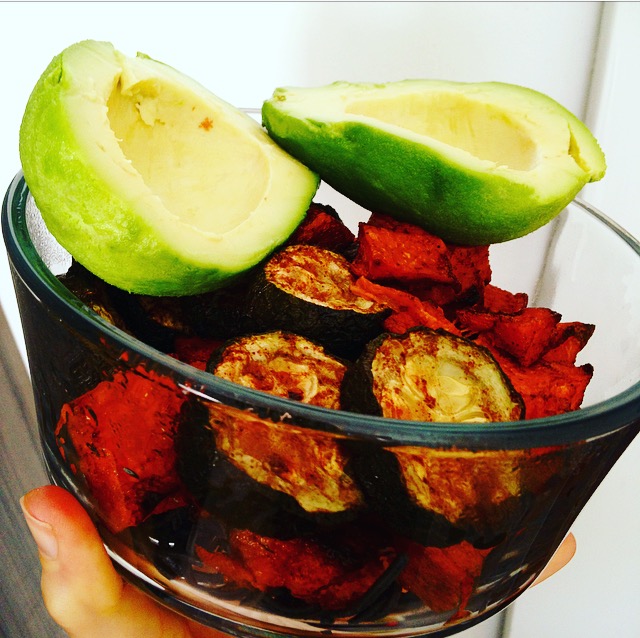A friend and I were chatting the other week and it dawned on us that there is very little written on the topic of life after an eating disorder. There’s plenty of advice given for what to do when someone has an eating disorder ranging from – in my personal experience and opinion; borderline cruelty, to practical, common-sense suggestions, but nothing much after that.
Being my ambitious, “let’s-just-put-it-out-there”, self, I said …
“maybe one day I’ll write a book on how to properly heal from an eating disorder (rather than just mask or band-aid it)”.
My friend and her mum feel frustrated that most books and articles (and professionals for that matter) suggest that an eating disorder stays with a person for life and that all they can do is “manage” it. I suppose this is true to a point. Once we’ve had anything, be it mental or physical, we’re usually more susceptible to a relapse, than the lay person is contracting it for the first time. However, this largely comes down to what our risk factors were in the first place, and whether remission was achieved by identifying and managing (or ideally, eliminating) these risk factors.
If we don’t continue to practice disease prevention daily – I’m talking basic self-care such as exercise, eating real food, getting enough sleep, laughing as often as possible, stressing less etc., then OF COURSE our risk factors are likely to get the better of us.
Like I said, I’d love to write a book that goes into this topic in far greater detail than what I’m about to share here. Who knows who I might help by writing about my own experiences? Particularly by sharing what instigated my un-usual eating habits and food-centred emotions in the first place, and how I identified and eliminated these initiating factors.
For now however, I’d love to share my I’d love to share my four top priorities for those wanting to reclaim their vitality after experiencing disordered eating. Perhaps you’re back to “reasonable” health (i.e. healthy enough to be out of hospital and back, more or less, to leading a “normal” life), yet still have a negative relationship with food, suffer from mood swings and fluctuating energy levels, intermittent depression/anxiety and/or have digestive disturbances.
If this sounds like you, read on …
See food differently
The calories-in, calories-out model has a lot to answer for. Many people, not just those eating disorders, see food as nothing more than energy. Food is far more than just energy – it’s information.
Nutrients are the basis of life and we have to get them from our foods.
We can’t make energy without B vitamins and magnesium, or hormones without essential fats and vitamin C. Without quality, bioavailable protein, our muscle cells will atrophy (die) and without fibre your daily dingleberries (a.k.a your endorphin-inducing stool evacuations) will be a no-show! We can’t absorb calcium without vitamin D, and without calcium (+ magnesium, silica, phosphorus and several other goodies) our bones will be thin and brittle.
Sodium and potassium are essential for nutrient transportation across the intestinal border and also regulate blood pressure and the electrical conduction of the heart (calcium and magnesium play a role here too). Chloride (from Sea or Himalayan Salt) is essential for stomach acid production, without which we can’t digest protein or neutralise harmful infections. Low stomach acid can cause acid reflux too – which I figured was worth mentioning, as most of us assume that the opposite is true. Need I continue? Because I could, probably for the next hundred years or so.
Trillions of cells make up the human body, and each one of them required nutrients to function independently – let alone as part of a multi-system team!
When we recognise how incredible (and frigga-liggin complex) our bodies really are, and what a vital role nutrients play in their overall function, food becomes functional, not fearful. Of course we question energy content. What with all the weight loss ads talking about low-calorie shakes and obesity-prevention initiatives encouraging us to lessen our portions sizes – who wouldn’t?
It’s ingrained in many of our psyches that calories are bad (even though energy is also required by every cell in the body!). When we look past this and see that we have to eat well just to live, eating and choosing nourishing options not only becomes important to us, but also instinctively natural. The question is no longer something along the lines of; “could I go without dinner tonight?”, or “what’s the lowest energy option?”. Instead we’re inclined to ask
“What will best nourish me today?”.
Learn what nutrients are in your fave foods and have fun building your plate (or glass)
This is an absolute game-changer. Eating becomes way more enjoyable, and something you simply can’t feel guilty for, when you understand how it’s benefiting you. For me, this is almost like a game. I’d like to talk about poo again. Having a history of liver and (most-likely coeliac as-well) disease (which by the way, were the root causes of my unusual eating habits/tendencies), I also have a history battling constipation. So for me, I find it a pleasure to seek out higher-fibre foods and incorporate as many of them into my days as feels comfortable. I also love antioxidants, so I look forward to seeing how many different colours I can gobble down before the day is through i.e. green spinach and broccoli, purple beetroot and Brussels sprouts, orange carrot and sweet potato.
You can use this mentality for anything. Maybe you’ve got a history of fatigue and/or insomnia. So educate yourself on what you body needs to make energy (and to sleep soundly) – hint hint; B vitamins, magnesium, lipoic acid and tryptophan are key players here, and then what (real) foods you can obtain these from (think narnies, spuds, nuts, seeds, raw cacao and green veggies). If you’re prone to muscular cramps, then seek out magnesium-rich foods and eat as many as feels appropriate each day (nuts, seeds, raw cacao and greens again rein supreme here).
When food becomes functional like this, and we enjoy the tangible results, it becomes the friend, not the enemy.
In fact, I’m almost scared of not eating enough (!), as the less bulk, the less impressive the stool. Who wants an unsatisfactory elimination dumping down – quite literally, on their otherwise joyous day? Exactly Sweet Spuds, exactly!
Acknowledge that treatment (while potentially life-saving) has also damaged your body
I’m not going to stand here (yes, lovely ones, I write pretty much all my blogs from a standing desk) and say that feeding tubes and high-calorie meal plans haven’t saved lives. When weight and nutrient status gets low enough, the number one priority isn’t health, supporting digestion, preventing chronic-disease or making the patient feel comfortable. The goal is survival, first and foremost.
Sadly the goal to survive rather than thrive seems to be the focus for the remainder of both hospital in- and out-patient programs. Peg feeds, powdered milky supplement drinks, ice-cream cups, crumpets with jam, juice “drinks”, refined cereals with poor quality milks, white wheat bread with margarines and flavoured yoghurts aren’t nutritious or conducive to digestive, mental health, immune or hormonal health!!! They may contain energy and synthetically-added “nutrients” but that’s where the goodness ends. They’re loaded with refined sugars, additives, preservatives, inflammatory generic “vegetable” oils and basically, are nutrient-devoid.
I don’t blame anyone for fearing food when these are the only options given. I don’t have an eating disorder but the mere thought of having to ingest these franken-foods, gives me heart palpitations! If you didn’t have a compromised digestion system before you were treated for an eating disorder (though I’m sorry to say sweet readers, you probably did as most ED patients have digestive complaints to some degree – which is often one of the root causes of disordered eating in the first place), you certainly will afterwards!
I’m not saying this to freak you out, but rather, to be honest. I want to let you know that if you’ve been complaining of stomach pains, wind, gas, bloating, bowel issues, reflux or anything in-between, and been told repeatedly; “it’s all in your head, you’re doing this to yourself and driving yourself bonkers”, that …
IT IS NOT JUST IN YOUR HEAD AND YOU ARE NOT JUST BEING SILLY!!!
To re-claim a happy, and functional relationship with your food and body, you have to heal that digestive tract and restore nutritional status
If you’ve got debilitating digestive symptoms, of course you’re prone to a negative relationship with food. If you aren’t digesting your food properly, then every meal time – no matter how healthy the foods are, will be unpleasant. Also, if you were malnourished for a substantial period of time, you’ve probably got a hangover of nutritional deficiencies. I’m not talking about energy deficiencies (so put the Sustagen away!). I’m talking about deficiencies in essential fats, amino acids, vitamins and minerals. These nutrients not only play a role in digestion, but also neurotransmitter production (and pretty much every other function in the body like we already discussed, but the former are specifically eating-disorder related).
How to heal? The best thing you can do is eat REAL, whole foods as close to their natural state as possible. You might want to consider some key nutrient supplementation as well, such as a B-complex vitamin supplement, magnesium, vitamin C and zinc. Oily fish (think salmon, ocean trout, mackerel, …sardines if you dare) or walnuts, chia seeds, inca inchi seeds and algae (spirulina etc.) for omega-3 fatty acids (for brain and nerve health) are important too. Prioritising fresh fruits, vegetables, nuts, seeds and gentle whole-grains such as buckwheat* and brown rice* is an ace idea also.
*refined grains and wheat-based products (plus non-organic soy, corn and canola) can be particularly problematic for ex-ED patients – as they’re naturally nutrient-devoid and pro-inflammatory and linked to gastrointestinal damage
Small, daily portions of fermented foods to support a healthy balance of gut flora will likely help too. Think a small bottle of kombucha tea, half a glass of coconut water kefir, or a spoonful of sauerkraut alongside the rest of your veggies. If you don’t like any form of fermented food, talk to a nutritionist about a probiotic supplement that will likely work for you and your health history.
If you eat meat; light chicken-veggie soups or small portions of slow-cooked lamb served with a stack of veggies drizzled with olive oil and a seasoning of salt and pepper, are generally easy-to-digest options. Otherwise, slow-cooked lentil dhal with rice or baked sweet spuds topped with a generous dollops of nut/seed butters, served with greens, olive oil, salt and pepper (and taking a vitamin B12 supplement) are good vego options.
The body is adaptable and on your side. It wants you to thrive. It just needs the nutrients to do so.
Remember, the body can’t function, let alone heal, without nutrients. The above recommendations are generalised but a good place to start for most people, whether you’re recovering from an eating disorder, alternate physical illness or simply just want to live a happy, nourished life with the food that loves you back.
If you desire individualised advice, a holistic nutritionist (someone with a Bachelor of Health Science majoring in Nutritional and Dietetic Medicine) has your back. Holistic nutrition professionals hate processed, packaged “supplementary” foods as much as you do, and are trained extensively on how to restore nutritional status, heal a damaged digestive tract and (drum roll please) …
support you in fostering a loving and functional relationship with the foods that provide the essential substances needed to sustain life.
This isn’t a plug for my future-profession. I only mention holistic nutritionists at the end, as I can’t provide individualised nutrition advice for you via a blog-post. I want to point you in the direction of a professional that, from my extensive research, will best understand what you need to move forward – and will never, ever even entertain the idea of an Up&Go- or Sustagen-like drink being a helpful idea. They will focus on food quality, rather than merely quantity, and always have optimal digestive function and neurotransmitter synthesis at the forefront of their minds.







